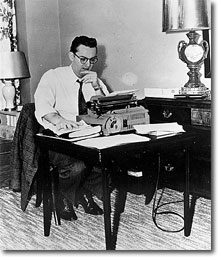 Over the last month or so, since finishing the rough draft of the last book of the series (now officially titled Victory Square), I’ve been struggling to conceptualize the next novel, about which I’ve only been sure of one thing: it’s gonna be a spy novel. A lot of writers are able to go with this, and simply start writing (and I’ve tried that too), but it’s become clear to me that I’m a formalist when it comes to writing.
Over the last month or so, since finishing the rough draft of the last book of the series (now officially titled Victory Square), I’ve been struggling to conceptualize the next novel, about which I’ve only been sure of one thing: it’s gonna be a spy novel. A lot of writers are able to go with this, and simply start writing (and I’ve tried that too), but it’s become clear to me that I’m a formalist when it comes to writing.
By this, I mean that, before writing in earnest, I need to have an idea of what shape the book will have. Will it be long or short? Will it be part of a series? Multiple perspectives? Heavy, or light, or even satirical? Will it read as a single continual tale, or be told in episodes? It doesn’t matter if my original concept is what I end up with (it seldom is)—I just need a reason to get excited, which gets my ass in gear.
Sometimes, I feel I’ve answered a few of these questions, and so I start writing, only to learn, some days and many words later, that I didn’t get it right. (I’ve probably written about 300 pages by now, all of which have been tossed aside.) And by “right”, I mean something that’s both interesting and original. So I pull back and return to pondering. This isn’t necessarily the best way to write, but we all develop our habits over time, and become dependent on them. It’s just the way it is.
Among my circle of friends here in Budapest are a lot journalists, and it’s often said that every journalist wants to be a thriller writer. I don’t know if this is true, but it’s true of many that I’ve met. We often talk about writing thrillers, coming up with plots surrounding some earth-shattering wicked conspiracy, or some earth-shaking invention that some people want to get hold of. And though my have stories rarely dealt with such “big” storylines, the conversations have started to sink into my brain.
The focus of these conversations always surrounds what that earth-shattering thing is. Fellow Nomad Robin once called it “the magic bauble”, the thing around which all the suspense and death revolves. We can call it “the stakes”, and in contemporary thrillers, there’s the assumption that the stakes must be huge.
Back to me: In various incarnations of my many pages so far, I’ve been dealing with this idea, that the underlying plot must be something that either makes the planet quiver, or at least means the death of large numbers of people. Which is one reason I keep tearing up pages. And why, now, I seem to have turned a corner.
Largely it’s the result of frustration, but I’m starting to think that the big stakes, no matter what they are, all look the same. Nuclear bomb? Yeah, okay. Poisoned water supply to a metropolis? Sure. Terrorist uprising? Of course. A new energy source that the oil companies want to keep quiet? Why not? But all these magic baubles are beginning to feel about the same to me. We’re dealing with fiction, after all, and we know that whatever disaster occurs will end by the end of the book. We know that the magic bauble is only there to keep things running along.
So I find myself moving in the opposite direction. I’ve recently become interested in an old television program (no surprise for those of you tired of my television talk!), Danger Man (in the US: Secret Agent), starring Patrick McGoohan (before his seminal series, The Prisoner). It’s “the thinking man’s Bond” in one way, but it’s also James Bond without all that pretense. Rarely is McGoohan’s agent, John Drake, saving the world. In the half-hour episodes of the first season (it went to a full hour afterwards), he sometimes finds himself in some pseudonymous Middle Eastern or Eastern European country, saving someone from assassination. But often it’s not even as sensational as that.

in absentia
Friar Wignall

 Last night I caught the three episodes of the
Last night I caught the three episodes of the  I came across
I came across 
 Over at Bookforum there’s an interesting piece called “
Over at Bookforum there’s an interesting piece called “ Over the last weeks, Günter Grass’s admission of having briefly been in the Waffen SS (that is, a part of the SS that didn’t run concentration camps) has been plaguing him all over the world. I personally don’t have a problem with it.
Over the last weeks, Günter Grass’s admission of having briefly been in the Waffen SS (that is, a part of the SS that didn’t run concentration camps) has been plaguing him all over the world. I personally don’t have a problem with it.